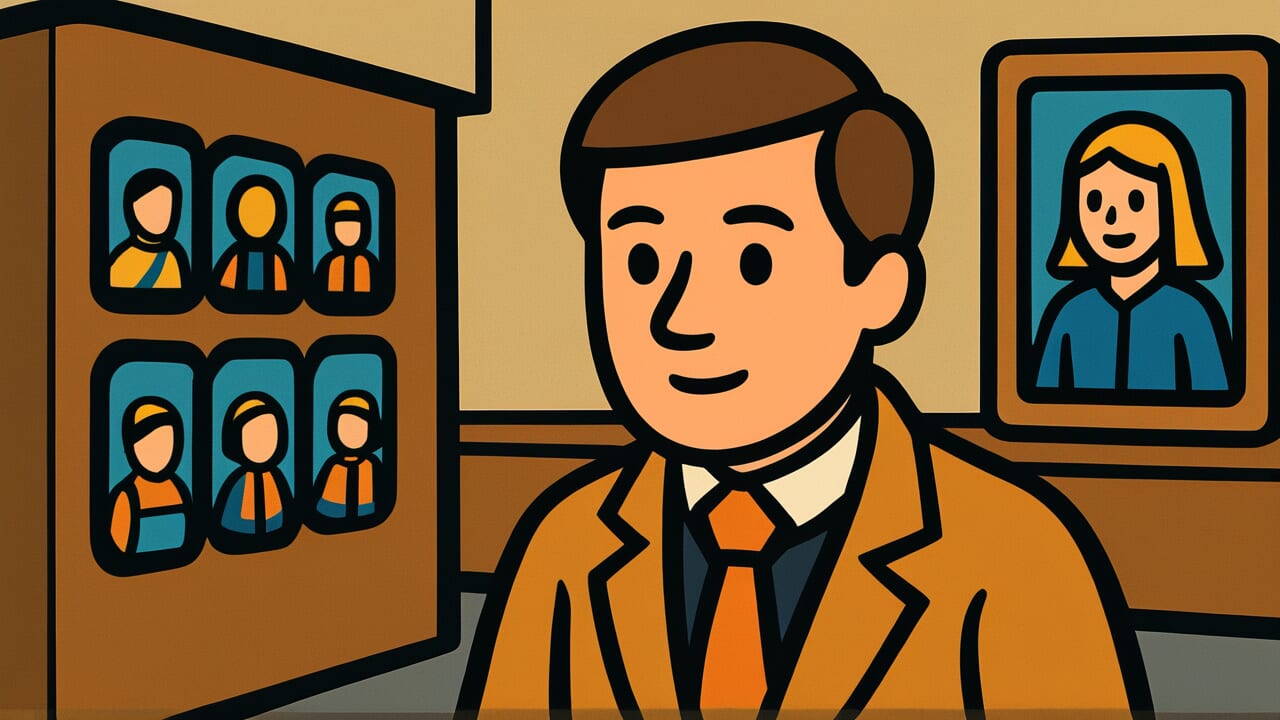How to Read “Merchants have no family trees”
Akindo ni keizu nashi
Meaning of “Merchants have no family trees”
“Merchants have no family trees” means that in business, your family background doesn’t matter. Only your skills and talent count.
Even if you come from a famous family, you can’t succeed without business talent. But if you have real skills, you can succeed no matter where you come from.
This shows how the business world is tough but fair. Everyone is judged by what they can do.
People use this saying to remind others that family name means nothing in business. It also helps encourage people who worry about their background.
Today, this idea still makes sense. In business, what you achieve matters more than your family or education. It supports the idea that hard work and ability are what count.
Origin and Etymology
We don’t have exact records of where this saying started. But it likely came from merchant culture during the Edo period (1603-1868).
A “family tree” showed your ancestors and family history. For samurai warriors, this was very important. It proved their family’s status and honor.
In Edo period Japan, society had strict classes. Samurai were at the top and cared deeply about their bloodline. They carefully kept their family records.
Merchants ranked low in the class system. But they were becoming very powerful economically.
This saying shows the difference between samurai and merchant values. Samurai took pride in their ancestry. But in the merchant world, reality was different.
Even someone from a great family would fail without business sense. But someone from an ordinary family could become rich with talent and hard work.
Merchants in big cities like Osaka and Edo used this saying. It expressed their pride in judging people by ability, not birth.
For merchants, yesterday’s glory meant nothing. What mattered was today’s deals and tomorrow’s opportunities. This saying showed their determination and values.
Interesting Facts
Many successful merchants in the Edo period had unknown backgrounds. Nobody knew where they came from originally.
In business, success was everything. People actually respected those who rose from nothing. It proved their talent and ability.
The samurai world was completely different. Some people even bought fake family trees. This business was called “family tree buying.”
New samurai wanted to look important. So they paid money for fake records claiming they descended from famous warriors.
Merchants never did this. Everyone in business knew that family trees had no value. Real ability was all that mattered.
Usage Examples
- His father is a famous business leader, but “merchants have no family trees”—without his own talent, the company will fail
- Don’t feel bad about not coming from a famous family—remember, “merchants have no family trees”
Universal Wisdom
“Merchants have no family trees” contains deep wisdom about how people should be judged. Everyone wants to prove their worth somehow.
The easiest way is to brag about things you were born with. Your family name or bloodline requires no effort from you.
But this saying points out how meaningless that is. Relying on your birth is taking the easy way out.
Business is brutally honest. You can’t fake it. If you don’t offer good products at fair prices, customers leave.
It doesn’t matter how famous your store name is. But an unknown shop with real value will naturally attract people.
This harsh reality actually makes everyone equal. It judges people fairly by what they can actually do.
Our ancestors understood what real ability means. It’s not something inherited from the past. It’s what you can do right now, today.
It’s your willingness to keep trying tomorrow. Don’t be trapped by bloodline—something you can’t change. Instead, bet on your talent—something you can develop.
That’s where human dignity lies. This saying carries a powerful message about that truth.
Yes, judging by ability is harsh. But it also means everyone has a chance. That’s the hope in this wisdom.
When AI Hears This
Why merchant families rarely last three generations can be explained by physics. It relates to entropy—the law that says disorder always increases.
Entropy measures how disorganized something is. Everything in the universe moves from order to disorder over time.
When a merchant builds wealth, it’s like a highly organized state. It’s concentrated in one place. But in an open market economy, this wealth naturally spreads out.
Think of hot coffee cooling down. Heat spreads to the surroundings. Wealth does the same thing.
The second generation splits the inheritance. Each person gets less capital. By the third generation, it’s divided even more. This follows physical laws—it almost never reverses.
There’s another interesting point about family trees. Maintaining “information order” costs energy. To protect bloodline, you must choose birth over ability.
But markets constantly change and seek new talent. Keeping a closed system of privilege requires huge amounts of energy.
It’s like a refrigerator using electricity to stay cold. Maintaining special status costs a lot.
Eventually, market competition acts like heat. Any merchant family exposed to this pressure melts into average status. This proves that physical laws govern social phenomena too.
Lessons for Today
This saying teaches you that your value comes from what you create yourself. Your birth environment, education, or parents’ jobs don’t have to limit you.
These “given things” might have some influence. But they’re not the deciding factors in your life.
At the same time, this saying shows a tough reality. Being born with advantages doesn’t guarantee anything either.
Riding on your parents’ success or past glory won’t work forever. In the end, what matters is what you can do now. What value can you create today?
But this is actually a hopeful message. No matter where you start, you can build your own path. You do this through the skills you develop and the results you achieve.
What matters is what you learn today and how you act. Your value isn’t determined by your family’s past. It’s determined by your future challenges.



Comments